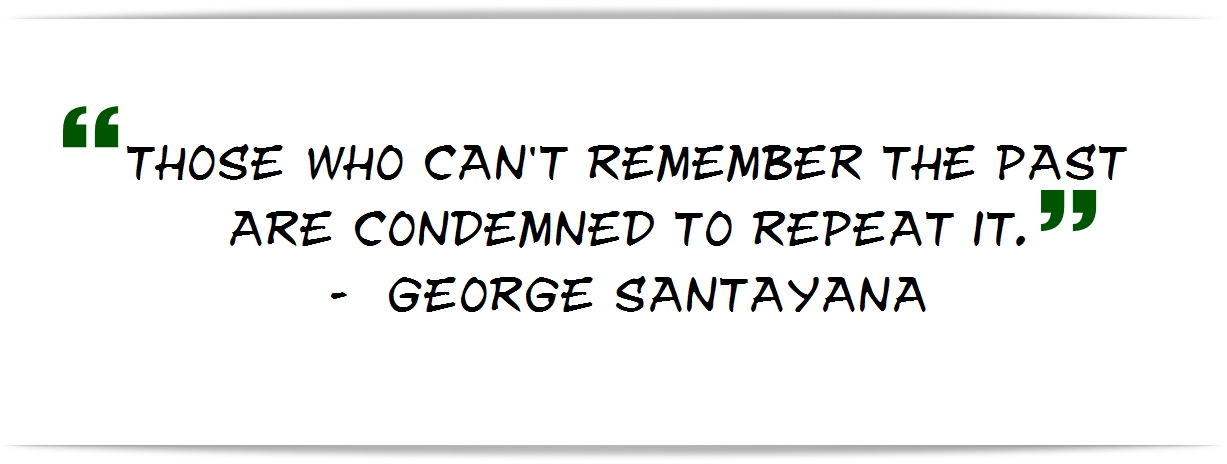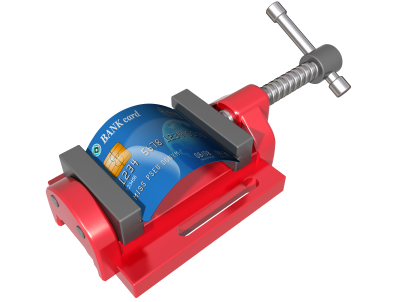
The Dow has dropped below 10,000 several times recently – a level it first reached more than eleven years ago and has since bounced over and back an astonishing 63 times!

Millions of people who were counting on their homes to help fund their retirement now have no equity to count on, because they owe more than their homes are worth.

Credit is still extremely tight for both businesses and consumers, underscoring just how little control we have when we have to rely on other people’s money.
As we face continuing economic challenges, many people are wondering… what does the future hold?
Ever hear the old saying, “Change is the only constant?” Today that is clearly true more than ever! Stephen Covey, author of the run-away best seller, Seven Habits of Highly Effective People, tells the following story:
A night watchman on a huge battleship alerted the captain that their ship was headed directly towards a light in the distance. The captain immediately sent the message, “Change your course 10 degrees south.” A few minutes later came the reply, “Change your course 10 degrees north.”
Perturbed, the captain signaled back, “I am the captain. Change your course 10 degrees south!” Five minutes later came the reply, “I am a seaman first class. Change your course north.”
Fuming, the captain sent one final message, “I demand you change your course. I’M ON A BATTLESHIP!”

I strongly recommend you change your course,” came the response. “I am a lighthouse.”

The moral of the story is pretty clear, isn’t it? The new economic realities are the lighthouse, and it’s insane for us to demand that everything in our way move over so that we can keep cruising straight ahead in our comfort zone.
If you were the captain of the battleship, what would you do? Hold your course… or change your course?
Well, each of us is the captain of our lives. We have a choice of changing our course and surviving… even flourishing, for that matter. Or staying our course and plunging head first into disaster.
So my question to you is, are you staying the course, hoping and praying that somehow things will magically work out? Or, are you becoming the captain of your ship and taking back control of your financial future?
Wall Street wants you to believe that if you just keep hanging in there long enough (paying them fees and fattening their wallets), you’ll be okay.
And they have the audacity to call this a financial or retirement “plan”!
I can promise you they won’t remind you that over the last 80 years, the Dow was in a stall that lasted from 12-25 years 65% of the time!
They are praying you don’t find out about the stock market study1 that revealed…
- During the 20th century, there was a 77-year span with no price appreciation in U.S. stocks, after adjusting for inflation
- Out of the past 207 years, stocks have spent 173 years – more than 80% of the time! – either faltering from old highs or clawing back to recover past losses
The study’s author, Robert Arnott, concluded:
As investors become increasingly aware that conventional wisdom of modern investing is largely myth and urban legend, there will be growing demand for new ideas and more choices”
Yet, the “experts” and talking heads have no better solutions to offer, do they?
It’s all the “same old, same old,” and maybe they’ll throw in some new twist.

Pfui!
You’ve probably heard that old chestnut, “Fool me once, shame on you. Fool me twice, shame on me.”

How many times have you already been fooled, only to keep coming back for more?
The ultimate financial security blanket in both good times and bad…
While the “experts” lament that there’s been “no place to hide,” none of the hundreds of thousands of people who use Bank On Yourself lost a penny in their plans when the markets crashed. Their plans have never skipped a beat and continue growing every year by a guaranteed and predictable amount.
However, no two policies or plans are alike – each is tailored to the client’s unique situation. To find out how much your financial picture could improve if you added Bank On Yourself to your financial plan, how much income you could take in retirement (guaranteed) and to get a referral to a Bank On Yourself Professional (a life insurance agent with advanced training in this method), request a free, no-obligation Analysis.
REQUEST YOUR
FREE ANALYSIS!
When tough financial challenges and family emergencies arise, those who use the Bank On Yourself method have been able to gain access to capital to see them through by answering just one question:
How much do you want?
But please understand – Bank On Yourself isn’t a magic pill – there aren’t any. It does take a little patience and discipline. but for those who have those traits, it pays a lifetime of benefits, including:
- The Bank On Yourself concept is based on an asset class that has increased in value during every stock market decline and every period of economic boom and bust for more than a century. That asset is dividend-paying whole life insurance
- Your money in one of these policies grows by a guaranteed and preset amount every year. In addition, the growth is exponential, meaning it gets better (more efficient) every single year you have the policy – with no luck, skill or guesswork needed to make that happen
- A properly structured Bank On Yourself-type policy incorporates little-known riders which turbo-charge the growth of your equity (“cash value”) in the policy, especially during the early years of the policy. This enables you to use your policy as a powerful financial management tool from Day One
- Once credited to your policy, both your guaranteed annual cash value increase, plus any dividends you may receive, are locked in. They don’t vanish due to a market correction
Can you imagine how much brighter your financial picture would be if you still had every penny of principal you put in AND all the growth you’d received?
- You control the money in your policy, not the government. You can use it when and how you choose, without the restrictions or penalties common to 401(k)’s and other government-sponsored retirement plans
- You have peace of mind for retirement planning, because you could know the minimum guaranteed income you can take in retirement, and for how long you could take it
- You can take an income from the policy with little or no tax consequences, under current tax law. If you believe tax rates are going to go up over the long term, keep in mind that when you defer your taxes in a 401(k) or other government-sponsored plan, you’ll only pay higher taxes on a bigger number!
- When you pass on, you have the peace of mind of knowing your loved ones could receive a death benefit many times greater than the value of your plan
I haven’t even listed all the advantages and guarantees of Bank On Yourself here. But this gives you an idea why Bank On Yourself can give you the peace of mind and solid financial foundation that are missing from most people’s financial plan.
And I’d like to point out that no one has stepped up to the plate and offered a different financial product or strategy that can match or beat the advantages and guarantees of a properly structured Bank On Yourself policy.
My offer to pay a $100,000 cash reward to the first person who can do that still stands.
There’s no cost or obligation to receive an Analysis that will show you how a program custom tailored to your unique situation could improve your financial picture and help you turn your back on the stomach-churning twists and turns of traditional investments.
If you haven’t already started to Bank On Yourself, please take the first step today and take back control of your financial future!
REQUEST YOUR
FREE ANALYSIS!



I have to say that our Bank On Yourself policies have stood the test of time. In 2007, my husband and I ventured into real estate and hard money loans. We figured we knew about it from reading books like Rich Dad, Poor Dad, and learning about it from the financial “adviser” we had at the time. Well, lo and behold, those investments have fallen flat on their faces, and thankfully, we have our BOY policies to bail us out.
We have lost 30K in our hard money loan, and are fire selling our real estate investment property at an auction. Needless to say, our financial adviser left us in a heartbeat.
Lessons learned – My husband and I knew that BOY policies work, but we thought we’d try these different avenues to increase our cash flow. Well, we learned that it’s more than just the ROI. We weren’t entirely comfortable in these investments, and had those intuitions that maybe this wasn’t the right thing. It seemed risky. Well, listen to those nudges! 🙂 Invest in what cultivates an abundance mentality, and peace of mind and economics go hand in hand. BOY policies meets those expectations for us.
For someone who is just a couple of years away from retirement, who has assets in IRAs, etc., is it “too late” to make use of Bank on Yourself?
Thanks.
It’s definitely NOT too late, especially because there is a good chance you could live to be 90 or beyond! We have many people starting to use Bank On Yourself pre-retirement and even post-retirement.
There’s only one way to find out for sure what your bottom line numbers would be if you added Bank On Yourself to your financial plan request a free no-obligation Analysis here.
Your link to the above reference ” the stock market study” by Robert Arnott would have been better to have the exact link, rather than taking me to another or your articles which still did not link to the original quoted article. I had to search it out for myself since I wanted to read the original findings. It was there and a good article.
It is a great article. I’m reluctant to post links to articles like this because that can be a copyright violation – and this particular journal is pretty strict about that. Any industrious person like yourself can easily get to the article by the information I provided.